2-Day Prolonged Exposure (PE) for PTSD – Jennifer Sweeton (Digital Seminar)
Description
Prolonged Exposure (PE) is one of the most effective and most studied therapies for PTSD available. It holds the strongest recommendation as a treatment for PTSD in every clinical practice guideline and allows clinicians to get straight to the heart of the problem for trauma survivors…the memory of what happened.
But you worry that revisiting these memories will lead to panic, symptom exacerbation and client dropout. And you fear that you aren’t prepared to handle a client’s distress. How can you overcome these concerns to bring this gold standard trauma therapy into your practice?
This 2-day seminar training, is a step-by-step guide to utilizing PE therapy in your practice, with the tools, techniques, case studies and clinical insights you need to treat a variety of populations and improve outcomes.
Taught by internationally recognized trauma expert Dr. Jennifer Sweeton, this course will show you how the clinical skills and instincts you already have can make PE more accessible and applicable than you ever thought possible. Attend and discover how you can:
- Set the stage with clients to decrease avoidance and reduce the chances of dropout
- Get specific guidance on structuring PE sessions
- Help clients modulate their distress and manage their emotions with simple techniques
- Confidently conduct imaginal and in vivo exposure
- Effectively work with “hot spots” – the most distressing aspects of your clients’ traumatic memories
- Address specific therapeutic situations including panic, anxiety, anger and irritability
Don’t leave one of the most effective trauma therapies out of your therapeutic toolbox!
Purchase today!
Outline:
Prolonged Exposure and the Emotional Processing Theory
- Emotional Processing Theory
- Who PE was designed for
- Research supporting PE as an evidence-based therapy for PTSD
- Comparison to other treatments for PTSD
- Risks and contraindications
Diagnosing PTSD and other Trauma (or Stressor) Related Disorders
- DSM-5™ criteria
- Cultural considerations
Brain Science of Trauma and Exposure Therapy
- Amygdala
- Hippocampus
- Insula
- Cortical areas
Assessment/Screening Tools
- Primary Care PTSD Screen
- PCL-5
- IES-R
- CAPS-5
Trauma Treatment Roadmap
- Bottom-up vs top-down approaches
- Stabilization and grounding
- Where PE fits into the roadmap
Preparing Your Clients for PE
- Assessing for readiness
- Motivational interviewing techniques
- Psychoeducation about trauma processing and PE
- Therapeutic alliance
The PE Protocol: Essential Components and Step-by-Step Training
Session 1
- Trauma interview
- Identifying the index trauma
- Breathing retraining technique
Session 2
- Common reactions to trauma
- Psychoeducation about in vivo exposure
- In vivo exposure fear hierarchy
- Homework assignments related to in vivo exposure
Sessions 3 and Beyond
- Imaginal exposure to the traumatic event: step by step
- SUDS, symptom monitoring, and stabilization
- Managing hot spots
- Processing of the exposure
- In vivo exposure progress
Final Session
- Final assessment
- Progress review
- Relapse prevention
- Determining next steps in therapy
How to Deal with Avoidance and Anxiety
- Over engagement/under engagement
- Panic/anxiety
- Anger
- Avoidance
- Homework compliance
PE Modifications
- Extending session length and/or increasing/decreasing frequency
- TBI
- Moral injury
- Other modifications
Integrating PE with Other Treatment Modalities
- EMDR
- Cognitive Processing Therapy
- Other cognitive behavioral approaches
FITNESS – HEALTH – MEDICAL Course
More information about Medical:
Medicine is the science and practice of establishing the diagnosis, prognosis, treatment, and prevention of disease.
Medicine encompasses a variety of health care practices evolved to maintain and restore health by the prevention and treatment of illness.
Contemporary medicine applies biomedical sciences, biomedical research, genetics, and medical technology to diagnose, treat, and prevent injury and disease,
typically through pharmaceuticals or surgery, but also through therapies as diverse as psychotherapy, external splints and traction, medical devices, biologics, and ionizing radiation, amongst others.
Medicine has been around for thousands of years, during most of which it was an art (an area of skill and knowledge) frequently having connections to the religious and
philosophical beliefs of local culture. For example, a medicine man would apply herbs and say prayers for healing, or an ancient philosopher and physician would apply bloodletting according to the theories of humorism.
In recent centuries, since the advent of modern science, most medicine has become a combination of art and science (both basic and applied, under the umbrella of medical science).
While stitching technique for sutures is an art learned through practice, the knowledge of what happens at the cellular and molecular level in the tissues being stitched arises through science.
Preview Information:
Original Page
Add more Author:
Dr. Jennifer Sweeton is a licensed clinical psychologist, author, and internationally-recognized expert on trauma, anxiety, and the neuroscience of mental health. Dr. Sweeton has been practicing EMDR for nearly a decade and has treated a variety of populations using EMDR and other memory reconsolidation approaches, including combat veterans, individuals with PTSD and complex trauma, and those suffering from treatment-resistant anxiety.
She completed her doctoral training at the Stanford University School of Medicine, the Pacific Graduate School of Psychology, and the National Center for PTSD. Additionally, she holds a master’s degree in affective neuroscience from Stanford University, and studied behavioral genetics at Harvard University.
Dr. Sweeton resides in the greater Kansas City area, where she owns a group private practice, Kansas City Mental Health Associates. She is a past president of the Oklahoma Psychological Association and holds adjunct faculty appointments at the University of Kansas School of Medicine. She is the president-elect of the Greater Kansas City Psychological Association. Dr. Sweeton offers psychological services to clients in Oklahoma, Kansas, and internationally, and is a sought-after trauma and neuroscience expert who has trained thousands of mental health professionals in her workshops.
Speaker Disclosures:
Financial: Jennifer Sweeton is in private practice. She has an employment relationship with the Oklahoma City VAMC. Dr. Sweeton receives a speaking honorarium from PESI, Inc.
Non-financial: Jennifer Sweeton has no relevant non-financial relationship to disclose.
More Course: NLP – HYPNOSIS – PHILOSOPHY
Outstanding Course:The Art Of Creating Change – Experiential Systemic Therapy



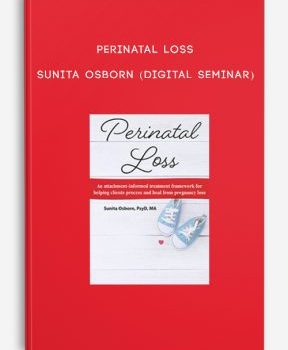
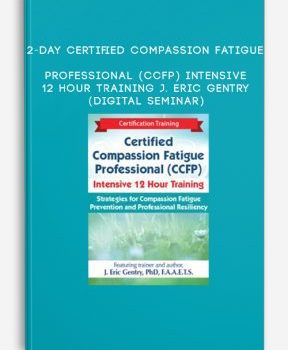
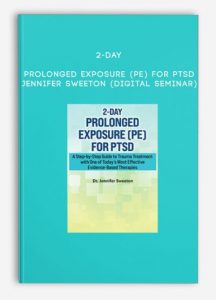
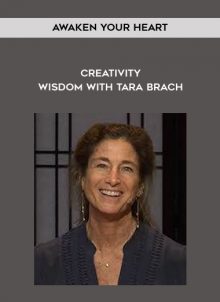
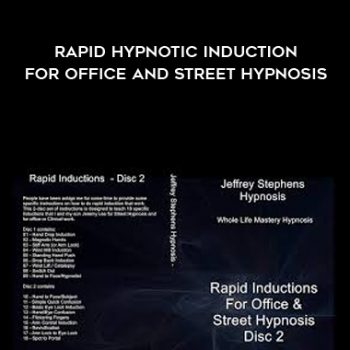





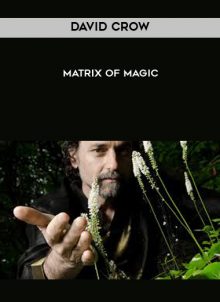
Lord –
This is Digital Download service, the course is available at Coursecui.com and Email download delivery.